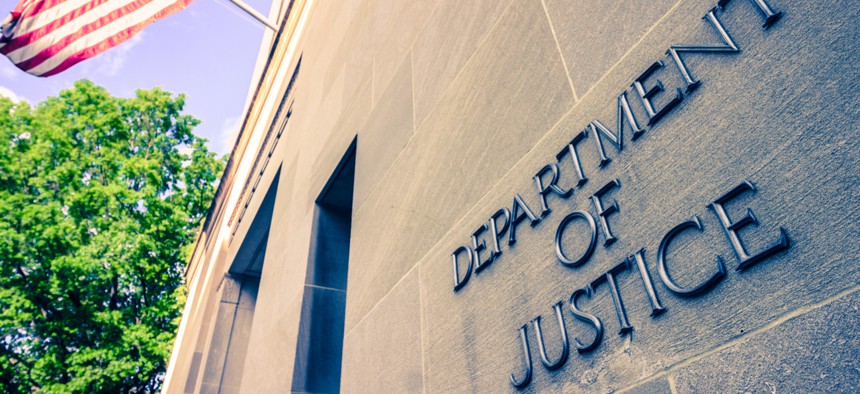
Shutterstock.com
Immigration Judges Sue Justice Department Over Gag Rule
The Trump administration is in violation of the First and Fifth Amendments, judges say.
Immigration judges are suing the Justice Department over a rule that prohibits them from discussing or writing about immigration policy in public, saying the restrictions violate their constitutional rights.
The Knight First Amendment Institute at Columbia University filed the lawsuit against Justice's Executive Office of Immigration Review on behalf of the National Association of Immigration Judges. The suit, filed in the U.S. District Court for the Eastern District of Virginia, Alexandria Division, seeks to block a January 2020 policy that prohibits the executive branch judges from, according to the association, "seeking to speak or write publicly in their personal capacities, no matter the topic, audience or venue." EOIR prohibits immigration judges from speaking in their personal capacities on any matter related to their job and agency, and for other topics requires agency approval any time they wish to speak at bar association events, law school discussions or to the media.
NAIJ is seeking a preliminary injunction to immediately block the policy's effect. The association said EOIR is violating the judges' First Amendment free speech rights, which government employees do not give up upon entering federal service. There is a heightened public interest for immigration judges to provide insights into the significant changes to immigration law in recent years, it said. Additionally, it argued in its court filing, expanding the policy to all speech in the judges' personal capacity could not be reasonably expected "to interfere with EOIR's operations.”
Absent an injunction, the association said, “immigration judges will continue to suffer the irreparable injury of being silenced during a time of extraordinary public interest in immigration law and policy.” It said judges have frequently either been denied permission to speak or write publicly, or not received a response to their requests. Some judges have been "chilled from even submitting requests to speak publicly," the association alleged. Among the recent topics immigration judges have not been able to speak publicly on are the safety concerns with EOIR's decision to keep most immigration courts open during the novel coronavirus pandemic.
Prior to 2017, immigration judges say they regularly spoke in their personal capacities to various stakeholders in the immigration court system. They always needed approval, but said it was almost always granted. A policy first issued in 2017 and strengthened in January has essentially made it impossible for the judges to speak publicly on matters related to immigration courts. The 2020 update extended the policy to published writings, the association said, and bars them "from speaking in their personal capacities about any topic related to immigration law or policy or EOIR, regardless of who invited them to speak, the forum, and whether they intend to use their title."
In addition to a First Amendment violation, NAIJ said the policy is unconstitutionally vague under the Fifth Amendment.
The association has frequently butted heads with the Trump administration and in January, EOIR sought to decertify the association, which represents immigration judges for collective bargaining, before the Federal Labor Relations Authority. NAIJ has suggested immigration judges should be removed from the executive branch and placed into an independent court. President Trump in 2018 said increasing the number of judges at EOIR would lead to widespread “graft” and questioned the need for immigration judges at all.
NEXT STORY: To Find Success, Practice a Strategic Mindset







